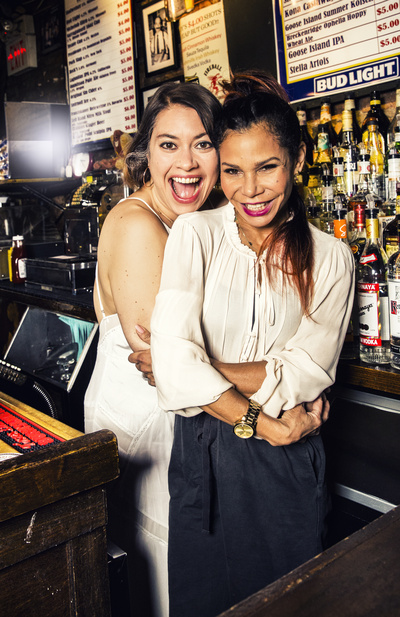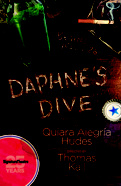Daphne's Dive Stars Vanessa Aspillaga & Daphne Rubin-Vega on Sisterhood, Diversity and Turning into Benny from Rent
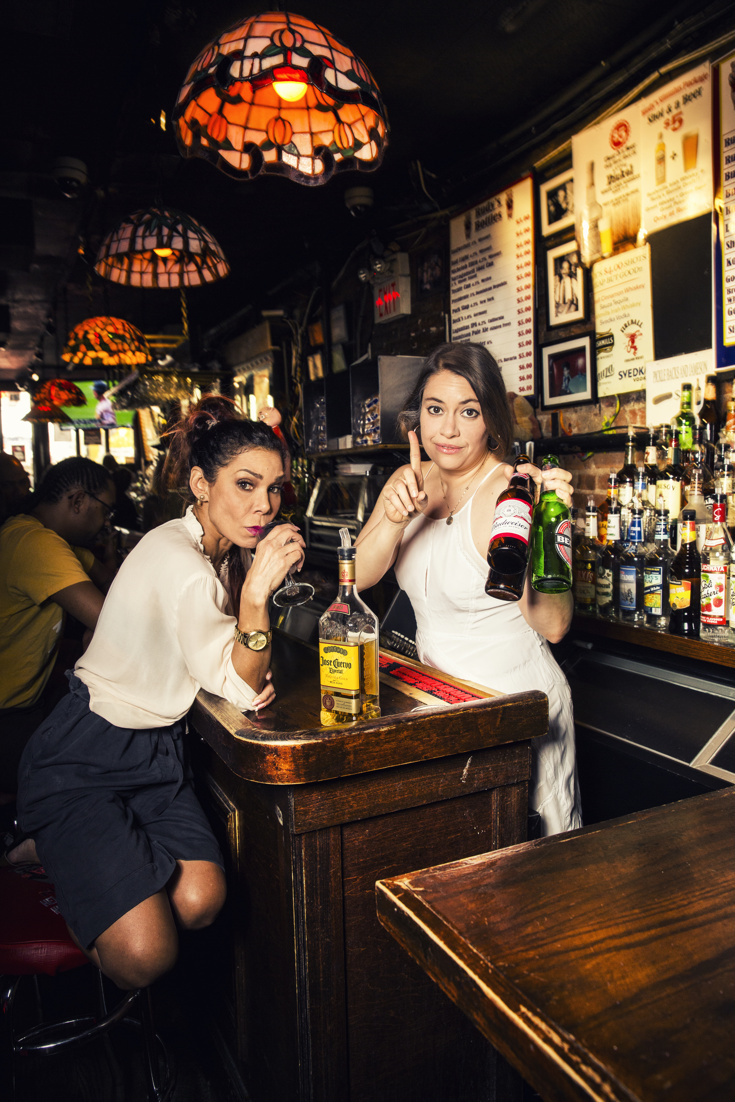
(Photo: Caitlin McNaney)
Sisterhood is powerful in Daphne’s Dive, the new play by Pulitzer Prize winner Quiara Alegría Hudes. In the title role, Vanessa Aspillaga runs a neighborhood bar in North Philadelphia where an array of colorful characters makes themselves at home. Her older sister, Inez, played by two-time Tony nominee Daphne Rubin-Vega, has escaped to the upscale Main Line thanks to her marriage to a rising power broker with roots in the Puerto Rican community. Thomas Kail’s production for Signature Theatre gives full voice to Hudes’ strivers, with Aspillaga and Rubin-Vega sharing a lively onstage chemistry first seen in the 2003 Broadway production of Anna in the Tropics. During an afternoon chat at the Theater District dive bar Rudy’s, the ladies sipped soft drinks and shared their thoughts about diversity in casting, the 20th anniversary of Rent and what they’d tell their younger selves.
Q: We’re sitting in a booth at Rudy’s, and Vanessa plays a bartender in Daphne’s Dive. What’s your drink of choice?
VANESSA: I don’t drink alcohol now, although I used to come to Rudy’s with Sam Rockwell and actors from Labyrinth [Theater Company]. You got free hot dogs with your drinks! When I imbibed, I liked a very dirty martini with olives stuffed with blue cheese. It was like a meal.
DAPHNE: I don’t drink either. I used to love wine, and tequila was always fantastic, but those days are over. Just going to the bathroom here took me back—it’s almost like CBGB.
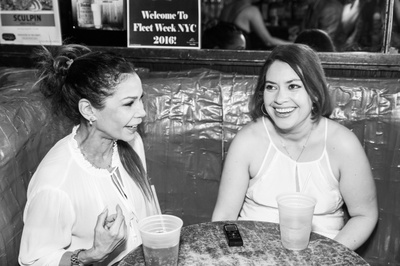
Q: The last time you two shared a stage, you were in a Pulitzer Prize-winning play on Broadway. It must feel like a gift to be reunited as sisters.
DAPHNE: That’s exactly what Tommy Kail said.
VANESSA: I’ve actually known Daphne since I was 19, in the early days of Labyrinth.
DAPHNE: The early ‘90s. She was the little one—Yul [Vasquez’s] niece.
Q: What do you love most about this play?
DAPHNE: Quiara has such a strong voice, and the play deals with so many relationships: sisters who have taken different paths, a mother and daughter [Samira Wiley of Orange Is the New Black], a daughter trying to make her way in the world. It’s poetry.
VANESSA: The play spans 18 years, and you get to see the changing dynamics between these people who have laughed and cried and mourned together. Time shifts, and you pick up how things have changed since the previous scene.
DAPHNE: It’s like jazz. What is left out is as powerful as what is said.

Q: As Inez, Daphne wears a spectacular lineup of wigs and costumes. Are you jealous, Vanessa?
VANESSA: I love her clothes in the show! She’s fabulous.
DAPHNE: I’m very bourgeois. I love playing the wife of a guy who rents things out. At one point, my husband says, “Have Inez show you some apartments,” and it tickles me to death. It’s my little “in” joke with Quiara: I’ve turned into Benny from Rent.
Q: Speaking of Rent, does it feel like 20 years have gone by since the show’s debut?
DAPHNE: Yes and no. Rent has been a big part of the fabric of my life. Not a day passes without it being brought up. Adam [Pascal] and I are doing a show [on June 3 at Ocean County College in Toms River, NJ], and when we rehearse the songs, the way they just come back—it’s like, holy moly!
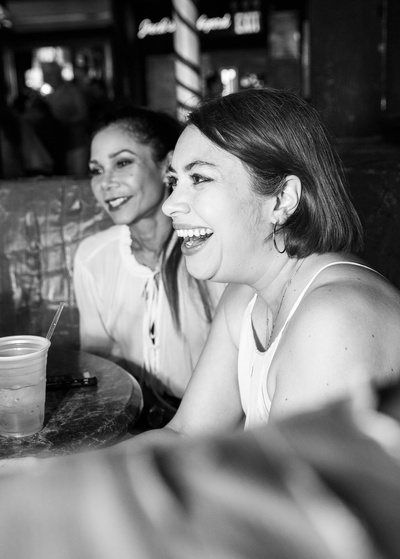
Q: Rent was praised for diversity in casting, and now people are saying the same thing about Hamilton. Has that issue gotten better in the past two decades?
VANESSA: There are changes, but they’ve been a little slow, in my estimation. One of the problems since the early ‘90s has been [scripts] written by Latino writers where everyone except the bastard and the whore is played by Anglo actors—plays like Death and the Maiden and films like The House of the Spirits. The reverse doesn’t happen, although funnily enough, my first job as an actress was in an Anthony Minghella film, Mr. Wonderful, and I was supposed to be Italian.
Q: Daphne has broken barriers by playing Fantine in Les Miz and Stella in A Streetcar Named Desire on Broadway.
DAPHNE: I make it my life’s work to do that. People ask me, “Why do you choose these political roles?” They become political by dint of the fact that the person playing them looks like me. It’s been a slow advancement, but we are creating our own stories now. We have no choice.
VANESSA Daphne and Quiara are working on a musical together!
DAPHNE: It’s called Miss You Like Hell and it’s being developed at La Jolla. [Performances begin October 25.] It’s about an undocumented mother and her estranged daughter reuniting for a week to ride across the country before the mom’s deportation trial. Quiara is such a powerful writer, I would follow her anywhere.
Q: Knowing what you know now, what advice would you give to your younger selves?
VANESSA: A couple of things: I would say love yourself. You are thin enough. You are beautiful.
DAPHNE: Believe in yourself. Confidence, infused with the truth, is a very powerful asset.
VANESSA: I channeled all my energies into my acting [in the past]. I took a lot of chances on stage, but in life, I tended to be more closed off and hermitic. I would say to my young self, go out with people! Call that cute guy who gave you his number. It’s OK!
DAPHNE: The biggest mistakes I made were when I tried to be like someone else. My strength was in being myself. I got traumatized after a record deal fell by the wayside, but I just kept going. The world was my teacher, and it helped me become an actor that I’m proud of being. I’m still alive and kicking!
